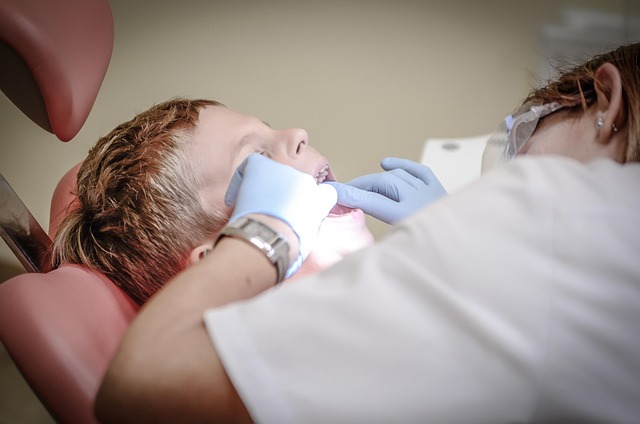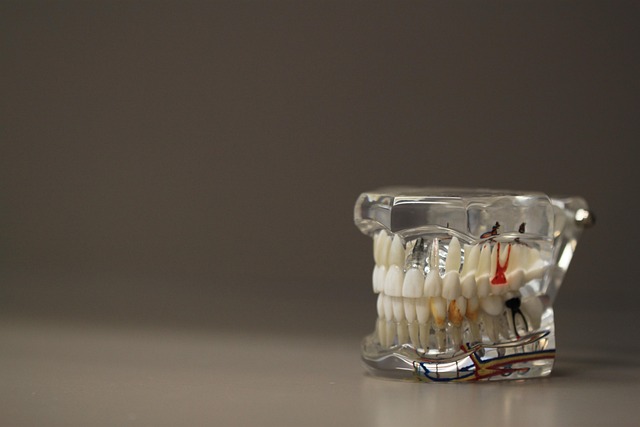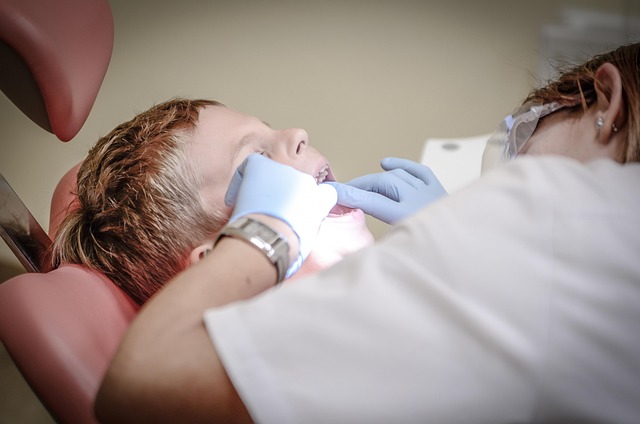Dental professionals face unique risks due to close patient interaction, specialized equipment, and high-pressure environments. Comprehensive insurance solutions are crucial to mitigate these hazards, including injuries, infections, chemical exposure, errors, and accidents. Key coverage options include professional liability (malpractice) insurance, property insurance, and business interruption insurance. These protect against lawsuits, property damage, and practice disruptions, ensuring financial security and peace of mind for dentists. Selecting the right insurer involves evaluating coverage scope, reputation, and claims process support. Insurance is a strategic tool to navigate complex patient care and legal obligations, safeguarding both practices and personal assets.
Dental professionals face unique risks in their daily practices, from patient interactions to potential medical errors. Understanding these risks is paramount for ensuring adequate protection. This article delves into the essential components of insurance for dental professionals, including liability coverage, practice protection, and navigating claims processes. By exploring these key areas, dental providers can safeguard their careers and businesses against unforeseen events. Discover how the right insurance strategies can offer peace of mind in this dynamic healthcare landscape.
- Understanding the Unique Risks Faced by Dental Professionals
- Types of Insurance Coverage for Dentists and Their Practices
- Importance of Professional Liability Insurance in Dentistry
- How to Choose the Right Insurance Provider for Dental Practices
- Case Studies: Real-World Examples of Dental Insurance Claims
- Navigating Claim Processes and What to Expect After a Claim
Understanding the Unique Risks Faced by Dental Professionals

Dental professionals face a unique set of risks that differ from those in many other professions. Their work involves close physical contact with patients, often in vulnerable states, and requires the use of specialized equipment and substances. This puts them at risk for various hazards, including injuries, infections, and exposure to harmful chemicals.
Moreover, dental practices can be high-pressure environments with demanding schedules and complex procedures, which increases the potential for errors and accidents. Insurance for dental professionals is crucial in mitigating these risks. It provides financial protection against liabilities arising from medical malpractice claims, property damage, or personal injuries sustained on the job, ensuring that dental providers can focus on patient care without the added burden of financial exposure.
Types of Insurance Coverage for Dentists and Their Practices

Dental professionals, like any other healthcare providers, need comprehensive protection to safeguard their practices and personal assets. Insurance for dental professionals comes in various forms tailored to meet the unique risks associated with dentistry. One of the primary types is professional liability insurance, often referred to as malpractice insurance. This coverage protects dentists against claims of negligence, providing financial security if a patient sues due to alleged mistreatment or misdiagnosis.
In addition to professional liability, dental practices should also consider property insurance to safeguard their physical assets, including equipment and inventory. Business interruption insurance is another valuable option, designed to compensate for lost revenue during periods when the practice must close temporarily due to covered events like natural disasters or public health crises. Combined, these insurance policies form a robust risk management strategy for dental professionals.
Importance of Professional Liability Insurance in Dentistry

Professional Liability Insurance, often referred to as malpractice insurance, is a crucial safety net for dental providers. It protects them from potential financial losses and legal liabilities arising from medical errors or accidents during treatment. In dentistry, where complex procedures and intricate details are involved, this insurance becomes even more critical. A single incident of negligence or an unfortunate outcome could result in substantial lawsuits, leading to significant financial burdens and damage to a dentist’s reputation. Insurance for dental professionals acts as a shield, covering legal fees, settlement costs, and any damages awarded, ensuring that providers can focus on patient care without the constant worry of potential legal repercussions.
This insurance is not just about financial protection; it also demonstrates a provider’s commitment to excellence and professionalism. By having appropriate coverage, dental practices can maintain trust with patients and their families, assuring them of the quality and safety of the services offered. It encourages dentists to stay updated with the latest medical knowledge and adhere to strict protocols, as they understand the potential consequences of any deviations. Thus, insurance for dental professionals is not just a legal necessity but also a strategic tool to enhance patient safety and practice longevity.
How to Choose the Right Insurance Provider for Dental Practices

Selecting the appropriate insurance provider is a strategic step for any dental practice, as it ensures protection against potential risks and financial losses. When choosing an insurer for dental professionals, several key factors come into play. First, assess the scope of coverage offered, ensuring it aligns with your practice’s specific needs. Dental practices vary in size and services rendered, so a tailored policy is essential. Look for comprehensive protection that includes professional liability, property damage, and any specialized coverages relevant to your dental equipment and staff responsibilities.
Secondly, consider the reputation and financial stability of the insurance provider. Research their track record, customer reviews, and financial strength to guarantee they can fulfill their obligations in the event of a claim. Reputable insurers often offer better service, faster claim processing, and peace of mind knowing your practice is protected by a reliable partner. Additionally, understanding the claims process and customer support available is vital; efficient and supportive insurance providers can make all the difference during challenging times.
Case Studies: Real-World Examples of Dental Insurance Claims

In the realm of dental care, protecting yourself from financial risks associated with your practice is paramount. Insurance for dental professionals acts as a crucial shield, offering coverage for a wide range of potential issues that may arise. Case studies from real-world examples of dental insurance claims highlight the importance of this protective measure.
For instance, consider a scenario where a dentist mistakenly implants a prosthesis in an incorrect position, leading to patient discomfort and potential legal repercussions. Comprehensive insurance coverage can help mitigate these risks by providing financial support for medical malpractice claims. Similarly, if a patient sues over perceived negligence related to sterilization procedures or records management, dental insurance can assist in covering legal fees and potential damages, ensuring the practitioner’s peace of mind. These real-world examples underscore the necessity of insurance for dental professionals as a strategic tool for navigating the complex landscape of patient care and legal obligations.
Navigating Claim Processes and What to Expect After a Claim

Navigating claim processes is a crucial aspect of managing risks for dental providers, especially as they look to secure insurance for dental professionals. When a claim is filed, it’s essential to have a clear understanding of what to expect. The initial step involves gathering all relevant information and documents related to the incident or treatment in question. This includes patient records, medical history, and any evidence supporting your side of the case.
After submitting the claim, dental professionals should be prepared for a thorough review process. Insurance companies will assess the claim against their policies and guidelines. Effective communication with your insurance provider is key; stay proactive in responding to requests for additional information or clarification. Understanding the potential outcomes, whether it’s a covered claim, denied claim, or a request for further investigation, will help dental providers manage expectations and take appropriate steps moving forward.
